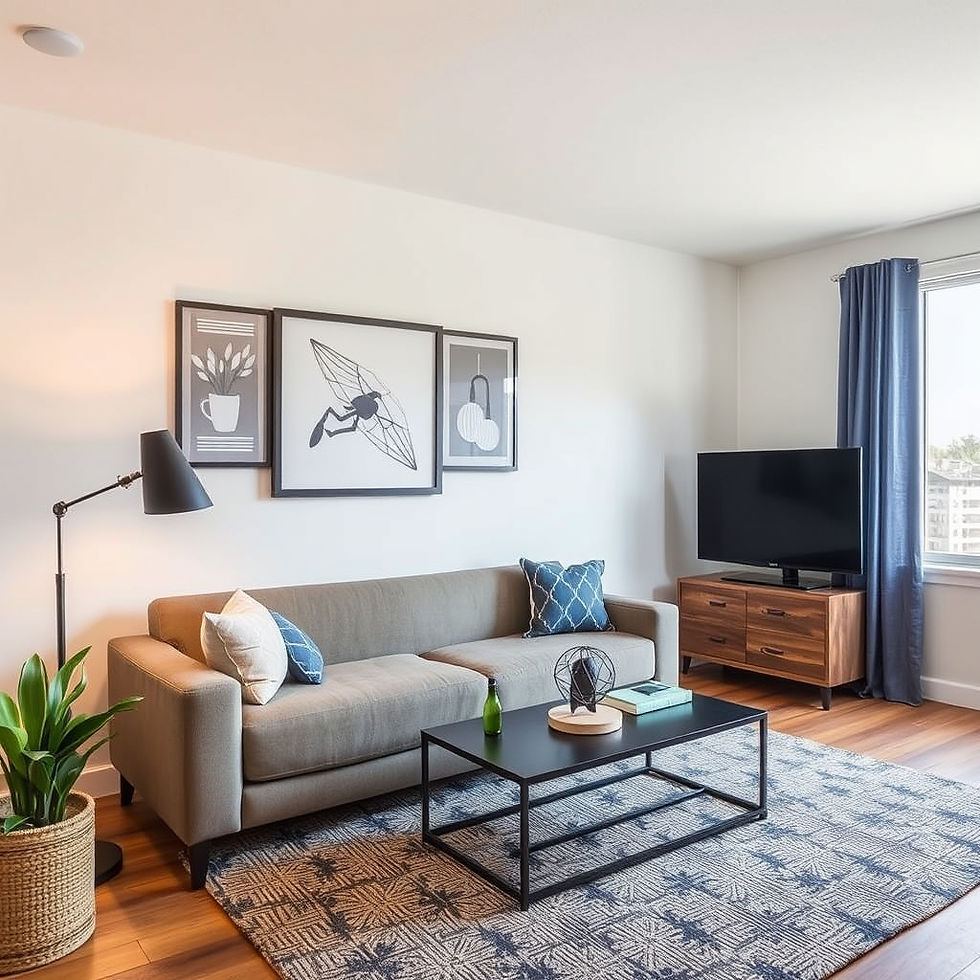A California Bill Would Cap Renters’ Security Deposits
- desiraer2
- Jul 27, 2023
- 3 min read
Updated: Aug 10, 2023
The legislation, which easily passed the Assembly, is part of a broader effort to lower the cost of housing in California.
July 24, 2023

The median rent in California has increased 35 percent since 2000, while the median household income for the state’s renters has increased 6 percent, according to a legislative analysis. Credit...Jim Wilson/The New York Times
As rents have soared in California, so have security deposits.
That’s because California law allows landlords to require up to the equivalent of three months’ rent from tenants as a security deposit. In San Francisco, where the median rent for a two-bedroom apartment is $3,961 a month, a tenant may have to deposit more than $10,000.
A bill moving through the State Legislature seeks to cap that cost, as part of a broader effort to make housing more affordable in California. According to one recent study, a lack of affordable housing is the primary reason for homelessness in California, a state with 12 percent of the U.S. population but 30 percent of the country’s homeless people.
Under rules established in 1977, landlords in the state can insist on the equivalent of two months’ rent as a security deposit for an unfurnished apartment, and three months’ rent for a furnished one. The new proposal would limit security deposits for all rental properties to no more than one month’s rent.
“It’s a huge burden for the over 17 million Californians that are renters,” Matt Haney, the assemblyman who wrote the bill, said of high security deposits. “I’ve met people who live in their cars or in shelters who actually work full time but can’t move into housing because they can’t afford the upfront cost.”
The median rent in California has risen 35 percent since 2000, while the median household income for the state’s renters has increased 6 percent, according to a legislative analysis of the bill. “Security deposit amounts have likewise seen a significant increase over the same period,” the analysis said.
Haney told me that he was inspired to introduce the legislation after meeting a janitor in his district, which encompasses the eastern half of San Francisco. The man was cramming into a one-bedroom apartment with his wife and two children. He could afford the monthly rent for a two-bedroom apartment, but not the thousands of dollars needed for the security deposit, application fees, and first and last month’s rent payable in advance, he said.
“There’s a lot we need to do to reduce the cost of housing for everyone,” Haney said. “But this is something we can do right now to bring a lot of relief.”
The bill, A.B. 12, easily passed the Assembly in May, and the State Senate is now considering it. Haney told me that more than 10 states, including New York, Massachusetts and Alabama, have similar caps.
The bill isn’t without its opponents. Several rental housing industry groups say the proposal could make it untenable for landlords to take on new tenants and could ultimately reduce the housing supply. Smaller owners in particular may pull their units off the market because they won’t be able to take on the risk without the financial offset, the groups say.
Debra Carlton, a spokeswoman for the California Apartment Association, a trade group that represents landlords, said that even the current security deposit limits did not always cover the damage that tenants left behind. And landlords sometimes have to spend thousands to evict tenants, she added.
“We understand the challenges tenants may have when it comes to coming up with a security deposit, but A.B. 12 is not the answer,” the association wrote in an opposition letter to Haney.
The Senate has until Sept. 14 to vote on the bill. If it passes, it would need Gov. Gavin Newsom’s signature to become law.



Comments